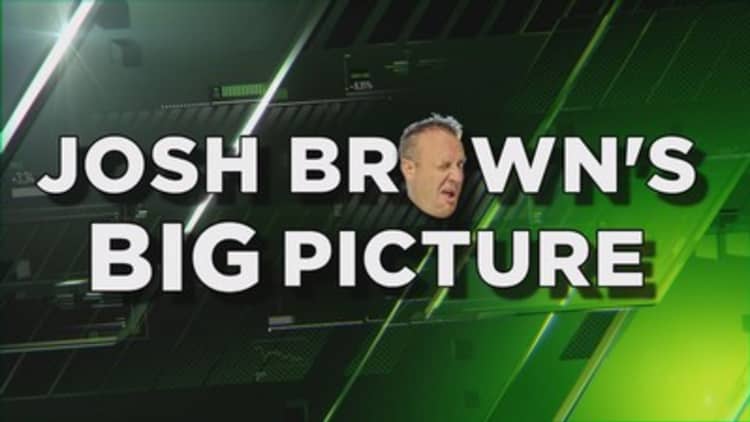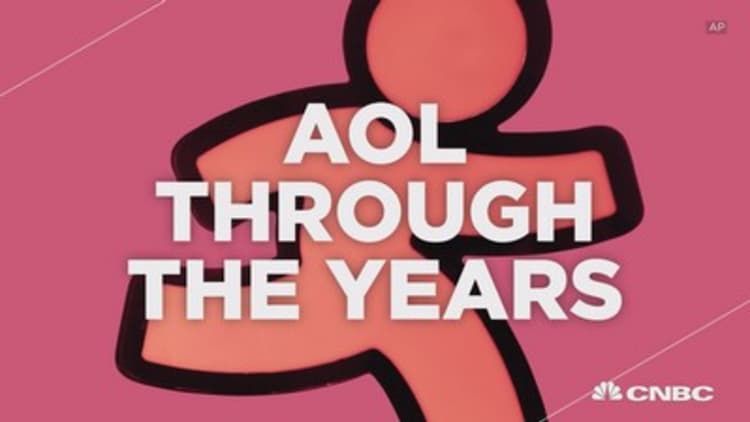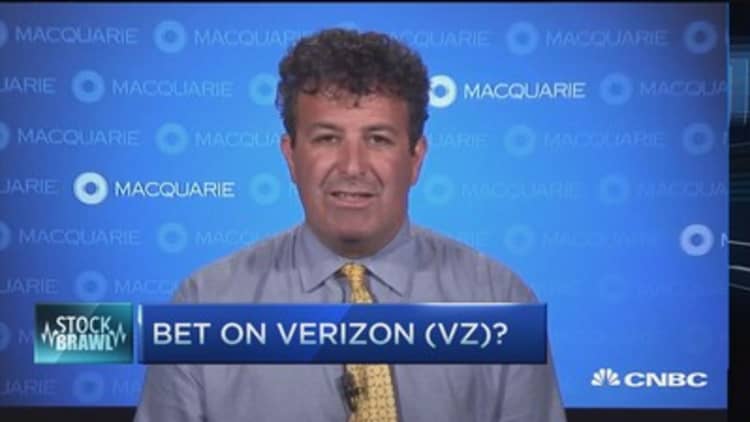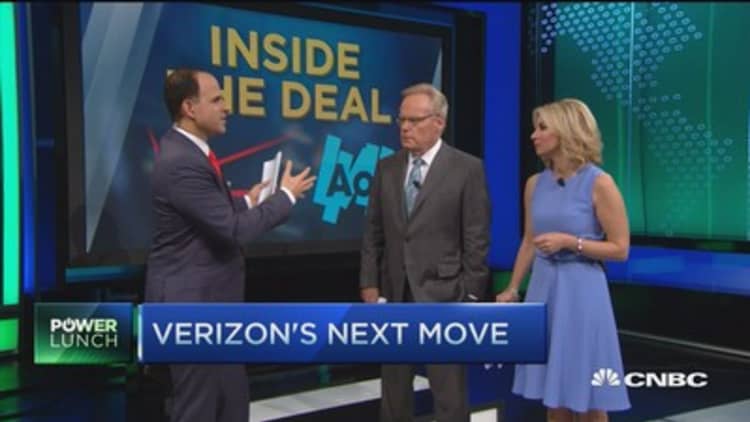




The crown jewel for Verizon in its acquisition of AOL is advertising, led by the mass media company's proprietary technology that could change the digital ad sales game in a big way for the telecom giant.
Currently less than 1 percent of Verizon's revenue is made up of ad sales, say analysts. AOL stands to help Verizon turbocharge that revenue.
"This deal was all about the programmatic ad platform," said Kevin Smithen, managing director and telecom head at Macquarie. Programmatic platforms allow brands to buy, place and optimize their ad purchases automatically through technologies, as opposed to through human-led sales.
Verizon Digital Media Services (DMS) lets brands insert ads programmatically into online and mobile video, and adding AOL's ad tech properties could help increase its capabilities, Smithen said.
In almost a foreshadowing of the desire for more advertising muscle, Verizon CFO Fran Shammo told Reuters in March that its coming online video platform would rely more on an "advertising-type" model rather than having consumers pay for the services.
"AOL's programmatic ad tech solution hasn't got a lot of traction, but apparently Verizon saw enough in the underlying technology and its existing DMS to think there's enough to go to market," Smithen said.
Verizon announced Tuesday that it would buy AOL for about $4.4 billion this summer. Verizon CEO Lowell McAdam told CNBC that the main goal of the deal was to provide consumers, content creators and advertisers with a multiscreen network platform. AOL stock closed up more than 18 percent Tuesday, while Verizon stock declined slightly.
Read More Verizon to buy AOL for $4.4B; AOL shares soar
Though AOL's earnings dropped from 35 to 34 cents per share year over year in the first quarter, it posted higher-than-expected 7.2 percent revenue growth. Leading the charge was its platforms unit—which includes digital advertising—reporting a 21 percent increase in sales to $279.8 million.
According to eMarketer, AOL was accountable for 2.1 percent of the $50.73 billion U.S. digital ad market and 0.74 percent of the $145 billion global digital advertising market. That puts AOL in the top six of companies with the highest digital ad revenue behind Google, Facebook, Microsoft, Yahoo and Twitter.
There is potential for growth: AOL's programmatic ad platform, One by AOL, allows brands to buy their campaigns across all formats, inventory types and screens, including television and digital video. Previously, it bought the marketing analytics company Convertro and programmatic advertising exchange Adap.tv. EMarketer estimates that programmatic advertising will reach $20.41 billion—63 percent of the display ad market—by 2016.
EMarketer analyst Lauren Fisher said AOL has done a lot in 18 months to push itself closer to the top of the programmatic ad industry. She said One by AOL pulls in all the major pieces in the digital ad ecosystem, providing a nice package for Verizon.
"Verizon has a mobile presence and has been doing things with television, but with desktop there's a lot of opportunity," Fisher said. "That's where AOL comes from, and adds a piece to this puzzle."
The purchase is welcome news for AOL, which can expand its cross-screen audience offerings and data insights through Verizon's broadband and telecommunications services, especially in mobile, added Fisher. Verizon currently serves 1.5 billion devices and helps facilitate 70 percent of U.S. traffic, AOL's chief executive, Tim Armstrong, noted in a "Squawk box" interview.
Read MoreWhy we sold to Verizon: AOL's Tim Armstrong
"Advertisers want to be able to have that cross-screen, audience-focused approach to how they buy, reach and resonate with individuals," Fisher said. "It's bringing this huge mobile piece into the equation."
Still, Macquarie's Smithen cautioned that ad tech is a nascent market. While many companies like AOL may have potential, it's hard to tell who will succeed.
"You could see a lot of M&A deals in the space particularly on the technology side, but it is very, very hard to figure out which technology path will win out in the end," Smithen said. "You are taking a bit of a leap of faith with technology."


